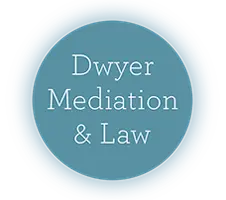Portland Family Mediation Services
 “Before we met with you in mediation, we could not have imagined eating Thanksgiving or Christmas dinner together again as a family. I am writing to let you know how grateful we felt sitting down for Christmas dinner this year – together.”
“Before we met with you in mediation, we could not have imagined eating Thanksgiving or Christmas dinner together again as a family. I am writing to let you know how grateful we felt sitting down for Christmas dinner this year – together.”
-From a former client in a family whose two generations had been fractured by provisions in a father’s will.
Family mediation offers a safe, sane process for resolving disputes. Conflict does not have to destroy our long-lasting relationships and our most precious bonds. A good family mediation council can help families find satisfying and lasting solutions, even when strong emotions are involved.
An Alternative to Litigation
Too many disputes end in hurt feelings and damaged relationships. Litigation is often ruinous for families. Not only is it wastefully expensive, it is not designed to deal with the complexities and problems that modern families face. Based on a “winner/loser” model, the litigation system does not focus on solving problems creatively and finding a resolution. No wonder people commonly report growing further apart and feeling worse during litigation.
Family mediation provides an alternative with better outcomes for everyone. Most families are able to find a good solution through mediation without losing the people they love.
The divorce process can be as confusing as learning a new language. I try to make it simple and understandable. After an Introductory Meeting to determine if we are a good fit to work together, there are three main phases:
Phase 1: Getting to Agreement. The first phase is getting to agreement on the terms of your divorce. In this phase we will identify your goals and plans; exchange and gather information so you can make good decisions; consider options that best meet your goals and plans; and make knowing and voluntary decisions that feel fair to you.
For parents, there can be five big issues to explore: custody of children, parenting time with children, child support, spousal support in some cases, and the division of your assets and debts. Also, for parents with minor children, during this phase you can take the required parenting class (necessary for a judge to sign your Judgment).
For mediating couples without children, there are two issues to explore: spousal support in some cases, and the division of your assets and debts.
You are in complete control of whether to reach agreement on any term. No pressure is applied. In fact, you can stop mediation at any point if it doesn’t feel right for you.
Phase 2: Preparing Legal Documents. The second phase of mediation comes after agreement is reached. During the second phase I draft your legal documents. I prepare a Judgment of Dissolution of Marriage that sets out all the terms you have agree on. I also prepare other documents you need to file your divorce case.
Phase 3: Filing in Court. After you have signed your documents (electronically), I will e-file your documents with the court. When the judge signs the Judgment, you will be divorced. I will monitor your case, notify you when the clerk has entered your Judgment in the court records, and obtain a signed copy of the Judgment for you.
Retirement Accounts. In some cases, after the Judgment has been entered, there is a 4th phase. I will send to the court for the judge to sign an order transferring 401(k) or retirement benefits if you have agreed to that in phase 1.
After Divorce. After your divorce, there are several things to do. These include changing title to a house or cars, possibly refinancing a mortgage, paying money owed, retrieving personal property, changing beneficiaries on insurance policies, and preparing new wills. I can prepare Bargain and Sale Deeds to change title to property and Satisfactions of Judgment when money awards are paid.
Modification. I am able to help with changes to the terms of the Judgment. The most common modifications arise in the areas of parenting time and child support.
